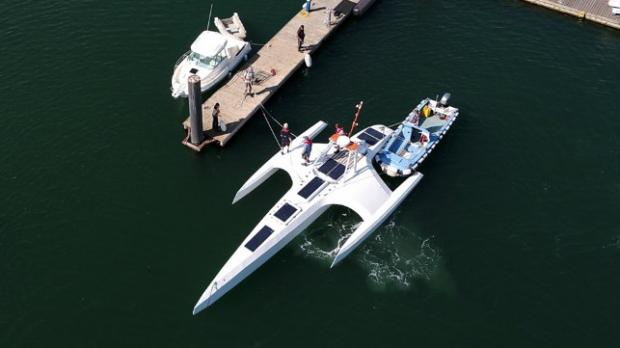
Breaking News
 Sunday FULL SHOW: Newly Released & Verified Epstein Files Confirm Globalists Engaged...
Sunday FULL SHOW: Newly Released & Verified Epstein Files Confirm Globalists Engaged...
 Fans Bash Bad Bunny's 'Boring' Super Bowl Halftime Show, Slam Spanish Language Performan
Fans Bash Bad Bunny's 'Boring' Super Bowl Halftime Show, Slam Spanish Language Performan
 Trump Admin Refuses To Comply With Immigration Court Order
Trump Admin Refuses To Comply With Immigration Court Order
 U.S. Government Takes Control of $400M in Bitcoin, Assets Tied to Helix Mixer
U.S. Government Takes Control of $400M in Bitcoin, Assets Tied to Helix Mixer
Top Tech News
 SpaceX Authorized to Increase High Speed Internet Download Speeds 5X Through 2026
SpaceX Authorized to Increase High Speed Internet Download Speeds 5X Through 2026
 Space AI is the Key to the Technological Singularity
Space AI is the Key to the Technological Singularity
 Velocitor X-1 eVTOL could be beating the traffic in just a year
Velocitor X-1 eVTOL could be beating the traffic in just a year
 Starlink smasher? China claims world's best high-powered microwave weapon
Starlink smasher? China claims world's best high-powered microwave weapon
 Wood scraps turn 'useless' desert sand into concrete
Wood scraps turn 'useless' desert sand into concrete
 Let's Do a Detailed Review of Zorin -- Is This Good for Ex-Windows Users?
Let's Do a Detailed Review of Zorin -- Is This Good for Ex-Windows Users?
 The World's First Sodium-Ion Battery EV Is A Winter Range Monster
The World's First Sodium-Ion Battery EV Is A Winter Range Monster
 China's CATL 5C Battery Breakthrough will Make Most Combustion Engine Vehicles OBSOLETE
China's CATL 5C Battery Breakthrough will Make Most Combustion Engine Vehicles OBSOLETE
 Study Shows Vaporizing E-Waste Makes it Easy to Recover Precious Metals at 13-Times Lower Costs
Study Shows Vaporizing E-Waste Makes it Easy to Recover Precious Metals at 13-Times Lower Costs
What a difference 400 years makes! AI 'Mayflower' will make groundbreaking crew-less...

An autonomous version of the historical Mayflower ship that's powered by artificial intelligence (AI) is set to make is maiden voyage across the Atlantic next month.
On April 19, Mayflower Autonomous Ship (MAS) will depart from Plymouth, England and arrive at Plymouth, Massachusetts about 3,000 miles and two weeks later.
The original ship, which transported 102 passengers known as the Pilgrims, took 10 weeks to reach its destination in the autumn of 1620.
The new 50-foot ship, which won't carry any human passengers or even crew, will roughly take the same route as its predecessor.
When they set sail from Plymouth, England, on September 16, 1620, the Pilgrims were escaping religious persecution and sought to establish a settlement in the New World.
Just over 400 years later, the MAS will gather critical scientific data about the ocean', powered by AI and solar energy.
MAS was first revealed in 2017 and was supposed to sail last September to mark the anniversary before plans were delayed due to coronavirus.
It's been made in partnership with University of Plymouth, autonomous craft specialists MSubs, tech firm IBM and public charity Promare which promotes marine research and exploration throughout the world.
'The single biggest challenge is the ocean itself,' said Brett Phaneuf, co-founder of ProMare.
'No ship has ever been built that can survive whatever the ocean could throw at it.'
With no human captain or onboard crew, MAS uses AI and automation to traverse the ocean in its quest for data and discovery.
Built in Poland to ProMare's specifications, the 5-ton, 50-foot-long vessel incorporates many advanced marine architecture features, all designed to withstand the stresses of extended trips at sea.

 Smart dust technology...
Smart dust technology...

